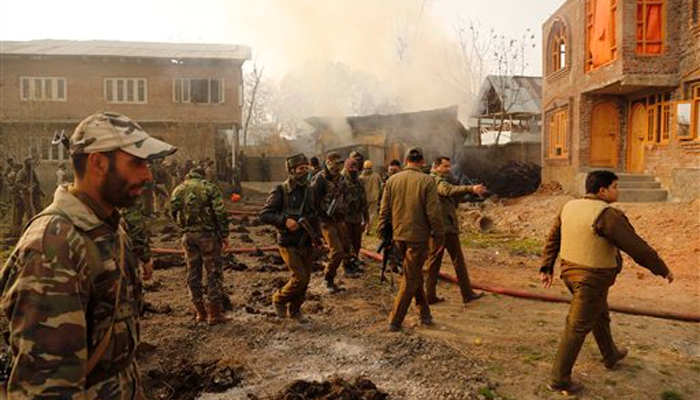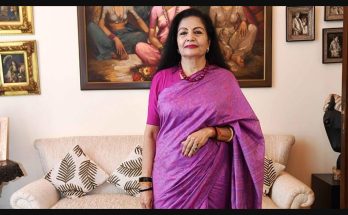 Jammu & Kashmir’s Chief Minister Mufti Mohammad Sayeed has condemned the successive terror attacks in Kathua and Samba, calling it a conspiracy to derail the peace process in the Valley. In Kathua, six persons, including two alleged militants, were killed in an attack on a police station, while in Samba, two militants were killed and army personnel injured in a six hour gun fight which broke out when the militants attacked an army camp.
Jammu & Kashmir’s Chief Minister Mufti Mohammad Sayeed has condemned the successive terror attacks in Kathua and Samba, calling it a conspiracy to derail the peace process in the Valley. In Kathua, six persons, including two alleged militants, were killed in an attack on a police station, while in Samba, two militants were killed and army personnel injured in a six hour gun fight which broke out when the militants attacked an army camp.
It was the first major terrorist attack in the state since the PDP-BJP coalition government (itself akin to an “earthquake” in J&K politics) came to power last month. Condemning both attacks, occurring within a span of 48 hours, Mr Sayeed said these sorts of attacks would not deter the government from seeking a peaceful solution through political dialogue. Dialogue with all stakeholders in the peace process is a part of the ‘framework for governance’ for the ruling coalition.
While Mr. Sayeed blamed the attack on “non state actors”, saying that “Pakistan is also a victim and their Prime Minister says he cannot do anything to control this”, the army blamed Pakistan for the attack and BJP MLAs raised anti-Pakistan slogans in the House, showing a possible contradiction in the ruling coalition. The opposition leaders demanded the adjournment of the question hour in the Jammu & Kashmir Assembly and then staged a walk out. Mr Sayeed later added that Pakistan would have to rein in these elements for a purposeful dialogue and that a strong message ought to be sent to those responsible for the attacks from the House.
Brigadier R.S. Rana had earlier said that the possibility of terrorists’ presence in the Samba district could be ruled out and that it appeared that those responsible for the Samba terror attack came from Pakistan. Presently, both Houses of the state legislature urged the Centre to impress upon the Pakistan government to take effective measures to prevent any such terrorist acts.
Pakistan has been a victim of terrorism, but its policy of ‘good’ and ‘bad’ terrorists, with the former being outfits which carry out cross-border terrorism, to serve Pakistan’s strategic agenda, has been long condemned by India. Also, the opposition has been vociferous in its attacks on the ruling coalition, which it sees as a marriage of convenience to grab power, incapable of handling issues since they have different ideological positions. Mr Sayeed’s expression of gratitude to separatist outfits and Pakistan for peaceful conduct of elections in the valley, the furore over the release of separatist leader Mashrat Alam, along with Mr. Sayeed’s recent comments on the repealing of AFSPA in a phased manner, brings out differences in the ruling alliance in the state.
Author Profile
- India Writes Network (www.indiawrites.org) is an emerging think tank and a media-publishing company focused on international affairs & the India Story. Centre for Global India Insights is the research arm of India Writes Network. To subscribe to India and the World, write to editor@indiawrites.org. A venture of TGII Media Private Limited, a leading media, publishing and consultancy company, IWN has carved a niche for balanced and exhaustive reporting and analysis of international affairs. Eminent personalities, politicians, diplomats, authors, strategy gurus and news-makers have contributed to India Writes Network, as also “India and the World,” a magazine focused on global affairs.
Latest entries
 DiplomacyApril 23, 2024Resetting West Asia, re-booting the world, but not fast enough: T.S. Tirumurti
DiplomacyApril 23, 2024Resetting West Asia, re-booting the world, but not fast enough: T.S. Tirumurti India and the WorldApril 22, 2024India’s G20 Legacy: Mainstreaming Africa, Global South in global agenda
India and the WorldApril 22, 2024India’s G20 Legacy: Mainstreaming Africa, Global South in global agenda DiplomacyApril 10, 2024Diplomat-author Lakshmi Puri pitches for women power at LSR
DiplomacyApril 10, 2024Diplomat-author Lakshmi Puri pitches for women power at LSR India and the WorldApril 6, 2024UN envoy pitches to take India’s solutions to the world stage
India and the WorldApril 6, 2024UN envoy pitches to take India’s solutions to the world stage







